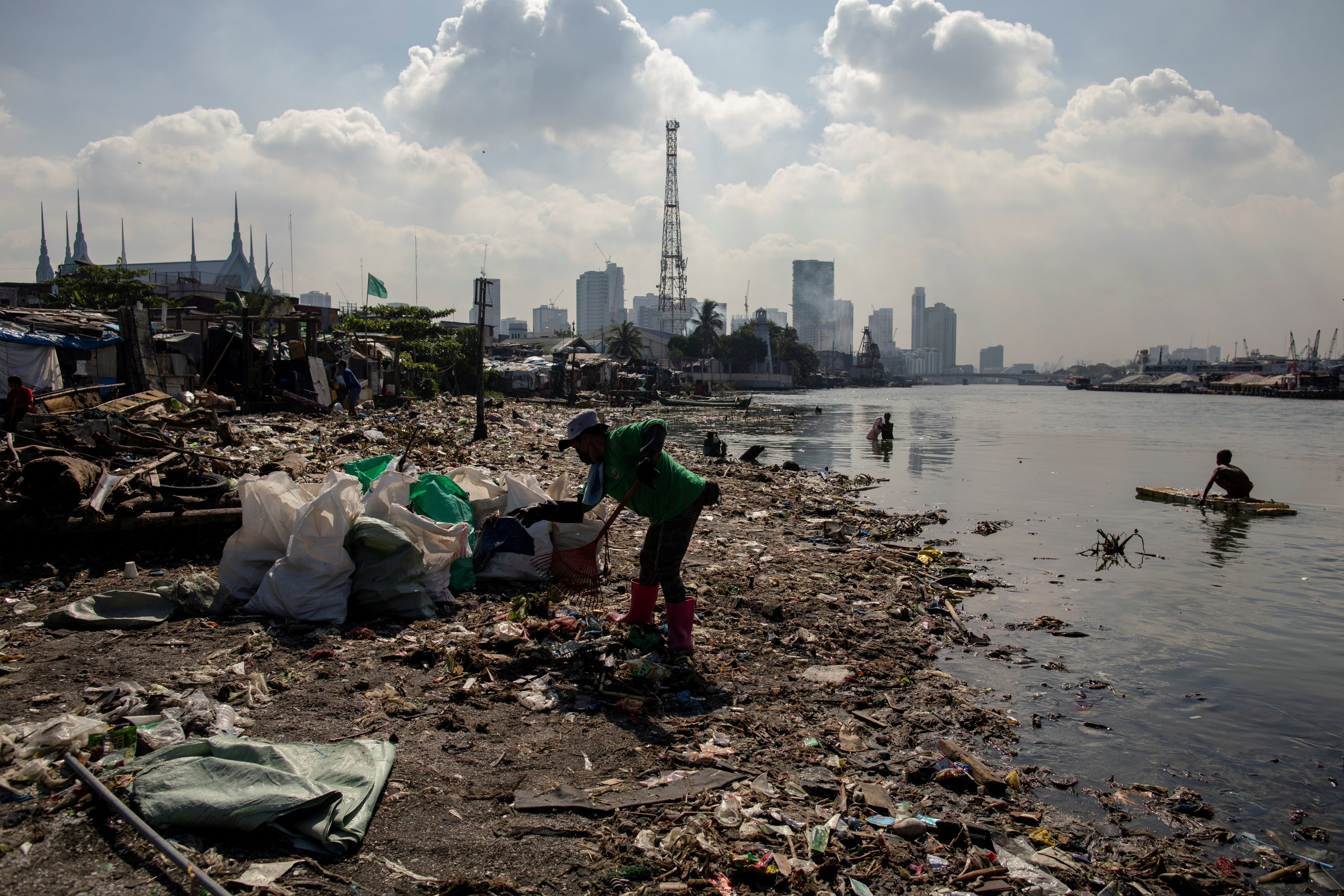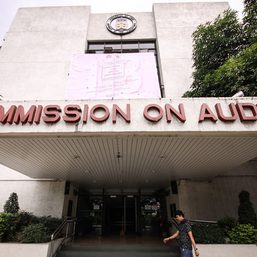SUMMARY
This is AI generated summarization, which may have errors. For context, always refer to the full article.

Environmental groups and advocates on Wednesday, October 27, filed a petition with the Supreme Court against the Philippine government for its failure to address plastic pollution.
Oceana Philippines led 51 petitioners in demanding the issuance of a writ of kalikasan and continuing mandamus on the “unabated production, use, and disposal of plastic.”
The National Solid Waste Management Commission (NSWMC) is mandated to implement Republic Act (RA) No. 9003 or the Ecological Solid Waste Management Act. The law was approved back in 2001.
This includes reviewing, updating, and enforcing a list of non-environmentally acceptable products, which petitioners said the NSWMC failed to do.
According to advocates, the state’s failure to uphold its mandate has led to its neglect of people’s health and right to a balanced and healthful ecology, and of the ecological life of the country’s waters.
When such basic necessities are compromised, “it is humanity who bears the full brunt of the consequences through disease, food insecurity, and climate change,” the petition read.
RA 9003 was initially supported by environmentalists during its conception. However, implementation has always been a problem.
“Ang pagsasampa ng kasong ito ay mahalang mensahe,” environmental lawyer Grizelda Mayo Anda said in an online press briefing on Wednesday. “Maganda ‘yung batas pero palagi nating sinasabi na ang butas ng batas ay ‘di siya talaga napapatupad.”
(Mounting this case carries an important message. The law is good on paper but it was never properly implemented.)
PH as top plastic polluter
Plastic pollution largely affects bodies of water around the world. Rivers and oceans are now clogged with plastics, which take hundreds of years to decompose.
Veneranon Carbon, who used to catch fish in Tañon Strait – a marine protected area – said they used to see a huge amount of trash wash up on the coastlines after rainfall or a storm.
But that was only a small chunk of the problem. Based on a recent study of The Ocean Cleanup published last April, the Philippines tops plastic contributors all over the world, with its 4,820 rivers emitting 356,371 metric tons of mismanaged plastic waste per year.
Unsurprisingly, the Pasig River is the most polluted river, the same study discovered.
Beyond the threat to humans, the widespread pollution also harms ecosystems and aquatic life. Biologist and free diver Evan Marie Palapar said they found ingested microplastics from bangus, tulingan, and tilapia – the top three commercial fishes in Metro Cebu.
From cradle to grave
The petition comes 20 years after the waste management law was approved and days before the 2021 United Nations Climate Change Conference or the COP26 happening in Glasgow, Scotland.
Saribuhay spokesperson Jon Bonifacio, one of the petitioners, emphasized that plastic pollution is not only an environmental problem but a climate issue as well.
Bonifacio raised the matter of making the fossil industry accountable for plastic production.
“From cradle to grave, nag-po-produce siya ng greenhouse emissions (From cradle to grave, plastics produce greenhouse emissions),” he said.
UK-based charity Ellen Macarthur Foundation found that by 2050, plastic production will account for 20% of total oil consumption and 15% of global annual carbon budget, or the allowed carbon emissions under the Paris Agreement.
Other groups are urging multinational corporations to phase out single-use plastics.
Despite the climate deadline, “the petrochemical and consumer goods industries remain on a trajectory to increase carbon-intensive plastic production and use,” the coalition Break Free From Plastic said in a press release.
In the Philippines, lawmakers have filed several measures banning plastics and supporting the waste management system.
The House of Representatives recently passed a bill banning single-use plastics. Its counterpart measure at the Senate is still pending. – Rappler.com
Add a comment
How does this make you feel?
![[OPINION] Vote for ‘green’ in 2022](https://www.rappler.com/tachyon/2021/10/Vote-for-green-in-2022-sq.jpg?fit=449%2C449)
![[OPINION] The country’s plastic crisis is an issue of justice](https://www.rappler.com/tachyon/2021/05/imho-country-plastic-1280.jpg?fit=449%2C449)









There are no comments yet. Add your comment to start the conversation.